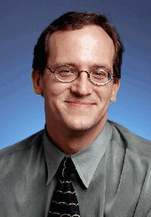(This is one article in a series written by different authors about BarCamp Nashville 2011. See the previous article in the series at http://flybluekite.com/2011/09/30/six-reasons-business-leaders-should-attend-barcamp/ and see the next article at http://kennysilva.net/)
Before travel to a country, it is important to study the culture and understand the history, to learn key elements of the language and etiquette - all to enrich the experience of and potential for enjoyment of the country. So here's some advice for those travelers who will stamp their BarCamp Nashville passport Saturday, October 15, 2011 at the Cadillac Ranch (http://BarcampNashville.org)

Nicholas Holland (http://www.linkedin.com/in/nashvilleholland) got me thinking about the origins of the name "BarCamp" when he was crowdsourcing event planning with a question on Facebook (or was it Google+) about what his company, Centresource (http://Centresource.com), should do at the event, in addition to sponsoring BarCamp Nashville 2011. He mentioned putting up a tent inspired by the "camp" part of the title and so I wondered...
The origin of the event is disputable, but the atmosphere is undeniable: it has been the same at science fiction "conventions" since the 1930's; was the same at computer science association meetings in the 1970's; was the same at hacker's meetings in the 1990's; was the same at every "unconference" (with titles like Barcamp, Podcamp, Geekcamp, Wordcamp, Mindcamp, Cloudcamp, Crisiscamp, HealthCamp, RECamp, Givecamp etc.) based (more or less) on "Open Space Technology: A User's Guide," by Harrison Owen. (http://www.amazon.com/Open-Space-Technology-Users-Guide/dp/1576754766/ref=sr_1_1)
WHERE MY HECKLERS AT?
SURVIVAL SKILLS

NOT REAL WITHOUT PICS
If a tree falls in the forest and no one tweets about it, does it make any sound? It might, but if no one tweets or posts or shares about Barcamp, you are missing the point. In addition to constructive heckling, the unconference idea is to share all of the discoveries, new ideas, good jokes and wardrobe malfunctions (oh, I hope not) with the rest of the online community (not just in the Nashville area, but around the world). Unlike traditional conferences where cameras and recording devices are sometimes banned (so you will buy the "official" recordings from conference organizers), someone should be able to follow BarCamp Nashville 2011 by monitoring the #BCN11 stream (http://twitter.com/#!/search/%23bcn11).
Joking with conference organizers one evening, I discovered that every year in the crop of new Barcamp volunteers, someone always suggests videotaping the sessions. It's always a big hoot & holler for conference veterans. Apparently they have tried a number of times, but have always been overwhelmed (complexity of audio in the open bar setting, lighting problems, editing issues, etc.). So unless some really intelligent video production company steps up to the challenge (hint, hint), it is up to attendees to capture and share as much as possible.
SHOWING UP IS 90% OF THE BATTLE
Now that you know something of the history, and some of the current challenges, I would encourage you to attend BarCamp Nashville (and follow these suggestions to get the most out of your experience - be the heckler, share the magic!), and to invite others in the local community to attend, and to invite those outside of the area to tune-in best as possible to monitor the event online. In the case of BarCamp Nashville volunteers, there is 10% inspiration and 90% perspiration, no question that is true. But in the case of attendees, just get your butt in those seats as early as possible (on a Saturday, I know). Show up, and with whatever energy you have left, please participate - loud and often!
###


Great post, Bayard! I really enjoyed learning more about the history of BarCamp and the reminders about (constructive) heckling and voting with my feet. Super pumped for Oct 15th!
ReplyDeleteGreat post, man. A lot of people think it's called BarCamp since it's often in a bar. That's more a matter of convenience... :)
ReplyDeleteNashville does put the "Bar" in barcamp... ;) but an excellent history, nonetheless, and very thorough. Well done.
ReplyDeleteLove love love this post Bayard! Thanks for sharing it and for the link love!
ReplyDelete